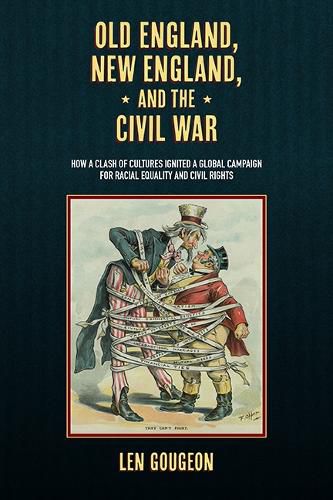Readings Newsletter
Become a Readings Member to make your shopping experience even easier.
Sign in or sign up for free!
You’re not far away from qualifying for FREE standard shipping within Australia
You’ve qualified for FREE standard shipping within Australia
The cart is loading…






The first study to document how the Civil War brought about a bitter cultural and political conflict between Great Britain and the United States, a conflict that ignited a global struggle for racial equality and human rights.
This study tells for the first time the story of a bitter cultural and political conflict that arose between the leading writers and intellectuals of Great Britain and the United States during the Civil War. The latter were virtually all New Englanders. Ralph Waldo Emerson was a central figure. The British side included such notables as Thomas Carlyle, Matthew Arnold, and John Ruskin. The conflict was focused on the viability of liberal democracy and the notion that "all men are created equal." The question was: What type of social, political, and cultural paradigm was best suited to ensure the advancement of civilization--one in which all have equal rights, regardless of race or class, or one where a small number of privileged white elites exercise a controlling power? The New Englanders embraced the former and the British the latter. The result was a bitter alienation that ignited a global campaign for racial equality and universal human rights.
$9.00 standard shipping within Australia
FREE standard shipping within Australia for orders over $100.00
Express & International shipping calculated at checkout
The first study to document how the Civil War brought about a bitter cultural and political conflict between Great Britain and the United States, a conflict that ignited a global struggle for racial equality and human rights.
This study tells for the first time the story of a bitter cultural and political conflict that arose between the leading writers and intellectuals of Great Britain and the United States during the Civil War. The latter were virtually all New Englanders. Ralph Waldo Emerson was a central figure. The British side included such notables as Thomas Carlyle, Matthew Arnold, and John Ruskin. The conflict was focused on the viability of liberal democracy and the notion that "all men are created equal." The question was: What type of social, political, and cultural paradigm was best suited to ensure the advancement of civilization--one in which all have equal rights, regardless of race or class, or one where a small number of privileged white elites exercise a controlling power? The New Englanders embraced the former and the British the latter. The result was a bitter alienation that ignited a global campaign for racial equality and universal human rights.